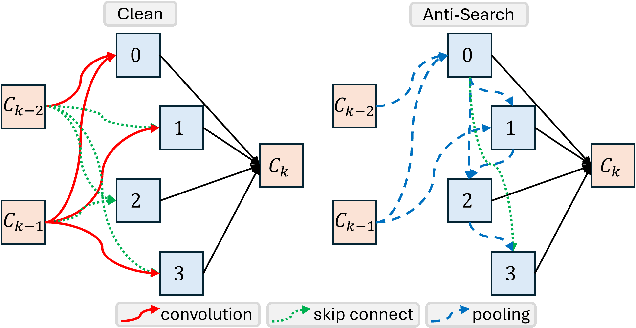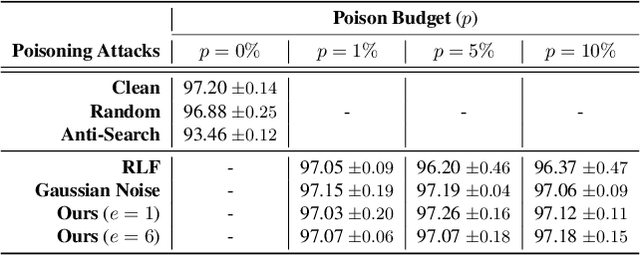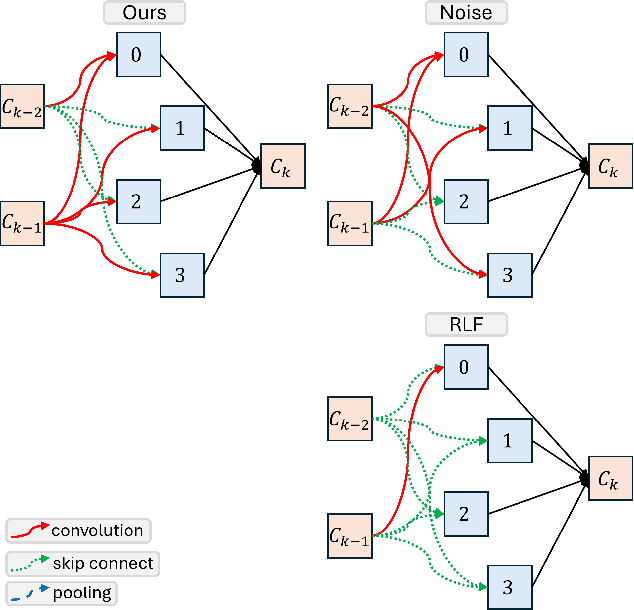Hard Work Does Not Always Pay Off: Poisoning Attacks on Neural Architecture Search
Paper and Code
May 09, 2024



In this paper, we study the robustness of "data-centric" approaches to finding neural network architectures (known as neural architecture search) to data distribution shifts. To audit this robustness, we present a data poisoning attack, when injected to the training data used for architecture search that can prevent the victim algorithm from finding an architecture with optimal accuracy. We first define the attack objective for crafting poisoning samples that can induce the victim to generate sub-optimal architectures. To this end, we weaponize existing search algorithms to generate adversarial architectures that serve as our objectives. We also present techniques that the attacker can use to significantly reduce the computational costs of crafting poisoning samples. In an extensive evaluation of our poisoning attack on a representative architecture search algorithm, we show its surprising robustness. Because our attack employs clean-label poisoning, we also evaluate its robustness against label noise. We find that random label-flipping is more effective in generating sub-optimal architectures than our clean-label attack. Our results suggests that care must be taken for the data this emerging approach uses, and future work is needed to develop robust algorithms.
 Add to Chrome
Add to Chrome Add to Firefox
Add to Firefox Add to Edge
Add to Edge